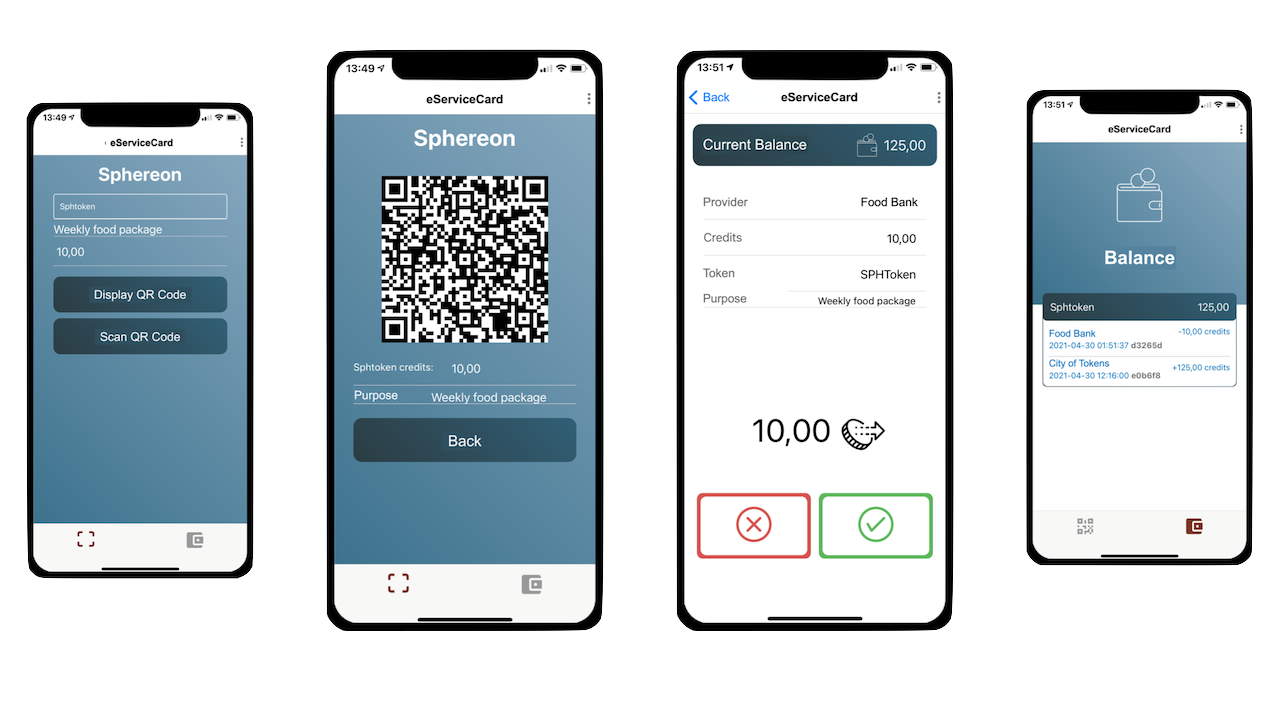Using tokenization for secure settlement and efficient operations of your community service and benefits programs
eServiceCard® enables organizations or communities to create their own ecosystem to issue, use and settle transactions using tokens.
Nearly all cities, towns, municipalities and non-profit organizations have arrangements and programs for those people under their care and in need.
Not only does the implementation and the operation of these programs cost time and money, also the entire administrative processing takes a lot of time.
The latter has to do with control to prevent abuse – after all, this concerns public or donor money – but also because many programs are unique and have a need to collaborate with multiple, internal and external, stakeholders and participants.
We have developed the eServiceCard application for this. An application with which you can optimize the administrative processes and can provide trust in the correct use of the funds.
In short, it works like this: a municipality – or other organization – can allocate a ‘budget’ to someone who qualifies for a certain program. This can be done on an ad hoc basis, based on a selection, but also be the result of a workflow process in the case management system of an organization. The allocated budget is then linked to a specific ‘Token’.
About Tokenization
A token has specific (programmable) characteristics and rules. Think, for example, of tokens that you receive at a festival: with a yellow token you can get a beer, and a brown token a burger. But only on the day of the festival.
In fact, regular cash is also a token: it is a piece of paper that says 5 euro. You can exchange it for goods and services, in the Netherlands, Germany, etc., but not in England or Scotland.
Municipality of Weert
For example, in Weert (NL) they generate tokens for Clothing that can only be spent on clothing at certain pre-approved suppliers on a certain days or weeks. It enables minimum income families to shop like any other family. No stigma.
But that can of course be much broader:
- cultural: theater visit or library,
- sports: swimming or sports,
- food bank,
- shelter, support, etc.
- or even municipal services, for example the use of a waste depot (how often, how much).
The key here is that you can program a token for the specific purpose and use.
User registration
It starts with allocating a budget for a specific purpose and with specific rules. The client will receive a message about this. The message contains a link to the eServiceCard App and a one-time registration code.
During registration, a unique digital wallet id is created for the client and the budget of tokens is placed in the digital wallet of the client.
Buying goods or services
The client can now start using the tokens. For this he can go to a provider that also has an eServiceCard Provider App.
The provider presents a ‘price tag’ in the form of a QR code. The client then scans the QR code with their own eServiceCard App. After checking and approval by the client, the transaction is executed, and the tokens are moved from the client’s wallet to the provider’s wallet.
The transaction itself is anchored on a public blockchain ledger, but no personal information id recorded.
Online Store
The same process can also be used in online shops of the municipality itself or from other providers. Upon payment, a QR code can also be displayed in the online shop checkout for the full amount of the goods or services. Or for a discount on them.
Administrative control and handling
As mentioned, we record these transactions on a blockchain ledger. This explicitly establishes the fact that a pre-authorized client has approved a transaction with a pre-authorized provider at a specific time. (Again, no personal data is recorded on the blockchain.)
This is the basis of the control and compliance. It is anchored and fixed in the system. Therefore, the settlement processing between the provider and the issuer, the city, town or municipality, can now be done automatically.
Based on the transactions in the blockchain, a report is made by a program and electronic invoicing can take place based on the ‘self-billing’ principle. These electronic invoices can be processed by the financial applications of both the municipality and the provider.
The approval of the payment itself can also be simplified, after all, the formal, legal, basis has already been established.

